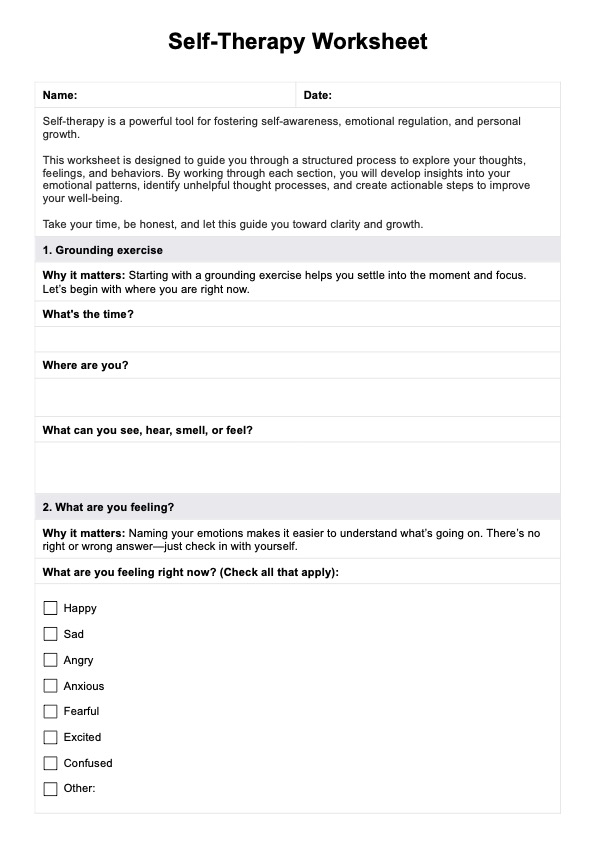The Self-Therapy Worksheet is designed to guide clients in self-reflection and emotional exploration, helping them understand their thoughts and feelings more deeply. It provides a structured framework for addressing challenges such as negative thought patterns, low self-esteem, and anxiety. By encouraging self-awareness and emotional regulation, the worksheet helps clients develop coping strategies and practice self-compassion, empowering them to take meaningful steps toward mental wellness.

Self-therapy
Integrate our Self-Therapy Worksheet into your practice to provide clients with a practical tool for self-reflection and emotional growth between sessions.
Self-therapy Template
Commonly asked questions
Mental health professionals can introduce the worksheet to clients as a complement to therapy sessions. It can be used to facilitate discussions, track progress, and reinforce therapeutic techniques like cognitive restructuring or emotional regulation. The worksheet is particularly effective for clients who benefit from tools they can use independently between sessions, such as identifying triggers, managing anxious thoughts, and developing healthier self-talk. Reviewing completed worksheets in subsequent sessions also helps deepen understanding and tailor interventions.
Yes, the Self-Therapy Worksheet is highly adaptable and can be used alongside various therapeutic modalities, including cognitive behavioral therapy (CBT), internal family systems (IFS) therapy, and rational emotive behavior therapy (REBT). It is rooted in self-help therapy techniques like grounding exercises, cognitive restructuring, and addressing the inner critic, making it a versatile tool for addressing a range of psychological challenges, from anxiety and stress to improving self-esteem and building healthier relationships.
EHR and practice management software
Get started for free
*No credit card required
Free
$0/usd
Unlimited clients
Telehealth
1GB of storage
Client portal text
Automated billing and online payments











